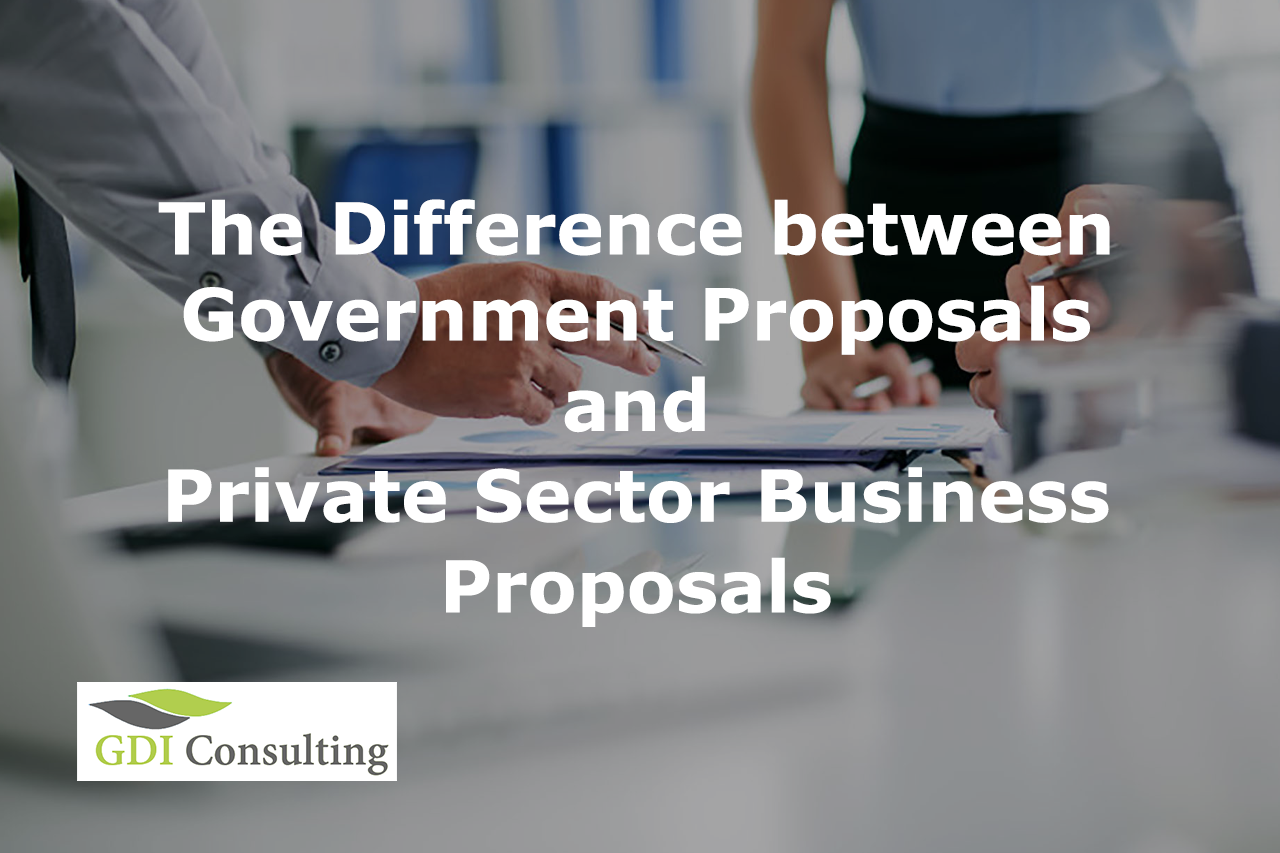Although services/products required might be the same, the way companies must prepare their proposals for the Government largely differs from proposals for the private sector. In the private sector world, you can propose whatever you want and the customer might accept it if they think your solution is advantageous to them or saves them money. On the other hand, in government proposals, you must understand exactly what they are asking for and prepare your proposal solution to perfectly fit their needs and requirements. Read the article to better understand core differences between the two.
Government Proposals
Companies across the country are interested to do business with the Government, and they do it by responding to Federal Request for Proposals. There are companies that have years of experience in the Federal market, and new ones that decide to enter the environment for the first time. Government acquisition process is very complex and consists of many regulations, policies, terms, and conditions; therefore, many enterprises that try to sell goods or services to Federal agencies hire proposal writing companies and subject matter experts to help them develop winning projects.
Even if your business has been a Government partner for many years, or for a certain federal agency, keep in mind that all of them have different regulations and process, whether they are federal, state or local government agencies or departments.
The way Government procurements and acquisition processes function, rules and regulations are set by Federal Acquisition Regulation (FAR). It administers and controls federal procurement proceedings, how Federal agencies issue request for proposals and how their responses (potential contractors’ proposals) are received. There is also a complementary DFAR which governs defense-related procurements.
Every business whose services or products match with the requirements and demands of the Government has the right to respond to an RFP and compete for contract awards. After getting well-informed, and reading and comprehending the solicitation’s requirements you can start developing your proposal. Each RFP is different, depending on the contract type and the agency. However, there is always “the Scope of Work”, instructions and steps you must follow to complete your proposal in the required format, evaluation criteria that explain how your proposal is going to be reviewed, and the winner selection process.
The reason why government potential contractors need to undergo such formalized processes is the indispensability of being completely compliant. To prepare a Government proposal you must strictly meet all compliance requirements described in the RFP.
Business Proposals
In businesses proposals for the private sector, you don’t have to be that compliant as long as your response is convincing and financially beneficial for your customer. Generally, businesses who sell their services or supplies for the private sector have fewer formalities to follow while preparing their proposals.
In addition, the consistency between proposals is not that important, and it depends on how much consistency there is in each business agreement. Eventually, every customer is different, including goods/services they require, how they want the job to be performed, their engagement, the scope of work, etc. In these instances, proposals must be prepared differently.
However, in instances when the sale of services and/or products are the same or very similar, every proposal you submit can be highly similar to each other. There is no pressure or strict regulations that dictate the format, style, or structure of the proposal development process, as it happens with a government proposal.


